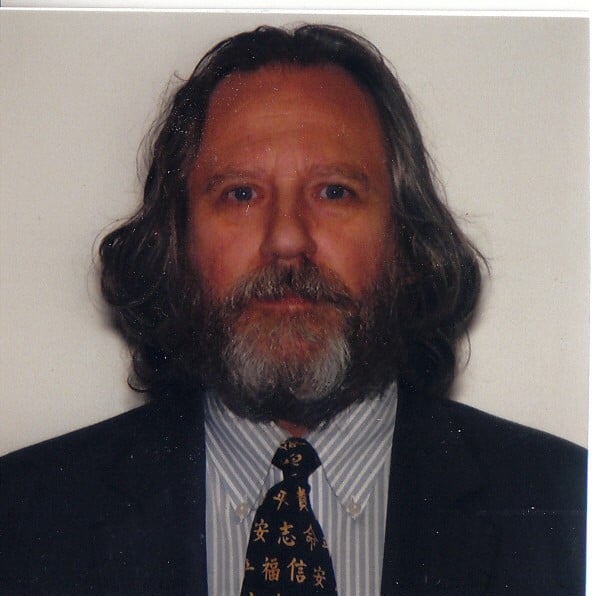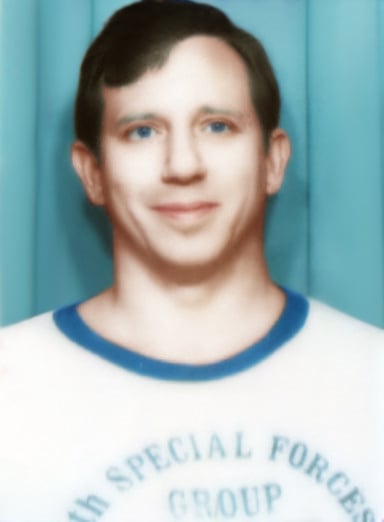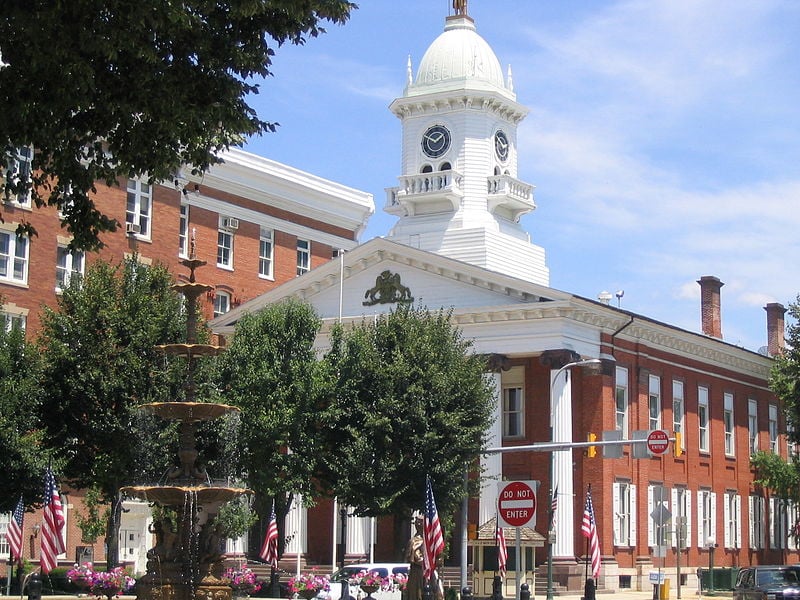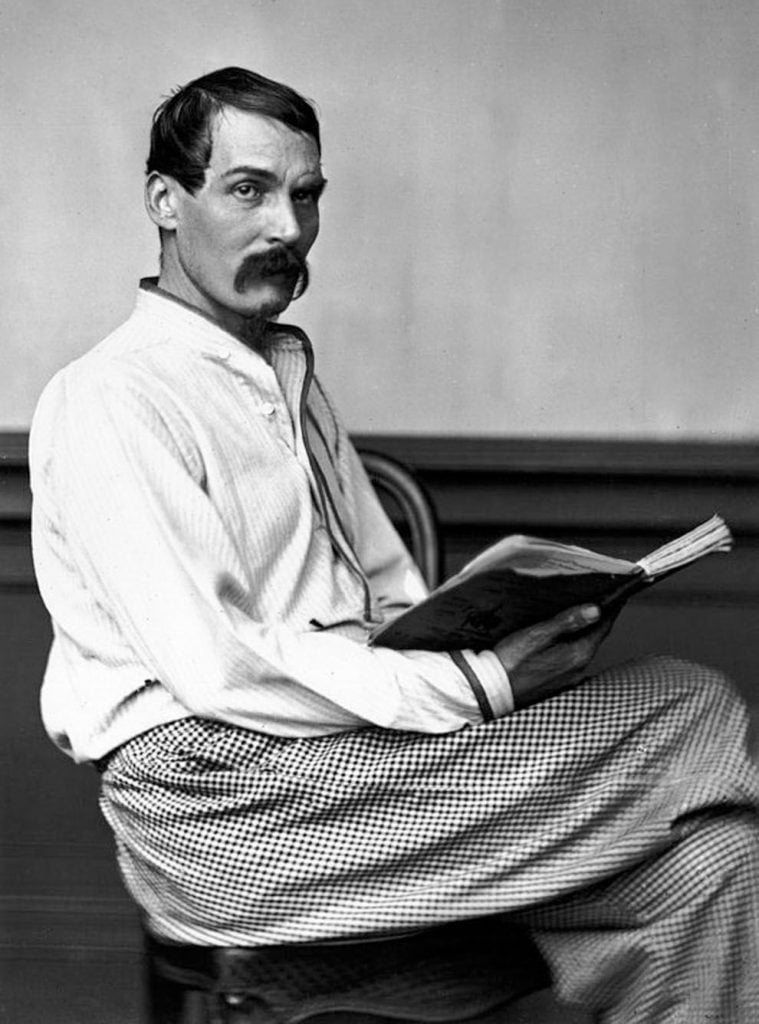Last updated: 6 months ago
Lisān al-‘Aarab (لسان العرب), the famous dictionary of Classical Arabic, contains 9273 roots (and 4,493.934 words). A huge playground for people who are passionate about Arabic such as…
Reginald Hefner
راجي
The man who speaks all the languages which the famous Middlebury Language School offers (except for Korean)
- Date of birth: I'd rather not share that.
- Place of birth: Chambersburg, Pennsylvania
- Place of residence: Chambersburg, Pennsylvania
Arabic, Modern Hebrew, Chinese, Japanese, Spanish, French, Portuguese, Italian, Modern Greek, Russian, Hindi, Urdu, German, and Swahili. He can read Latin and Sanskrit.
- His addiction to language learning started while he was a kid – with a book about Ancient Greek.
- During Vietnam War, Reggie was sent to Chinese language training at the Defense Language Institute. He worked as a Chinese interpreter for four years.
- B.A. in Russian (University of Maryland; 1979)
- B.A. Chinese (University of Maryland; 1982)
- Advanced Japanese (Foreign Service Institute, Yokohama, Japan; 1985)
- Japanese to English interpreter at the U.S. Embassy in Tokyo
- Modern Greek (Diplomatic Language Services; 1992); Certificate in Biblical Greek (1988)
- B.A. in French (Summa Cum Laude) and a minor in German (Shippensburg University; 2015)
- B.A. in Spanish (Summa Cum Laude; Shippensburg University; 2013)
- German and Russian language specialist (US army; Fort Bragg, North Carolina)
- Reggie has attended the Middlebury College Summer Intensive Arabic program nine times, more than any other student in the history of Middlebury College and has earned an M.A. in Arabic with a concentration in Teaching Arabic as a Foreign Language (TAFL) from Middlebury College (2015).
- Reggie had decided to quit his gov. career (and full pension) to care for his father who had Alzheimer's disease for 11 years.

picture credit: Reginald Hefner
How would you introduce yourself to someone who doesn't know you?
I would simply say, my name is Reggie.
What was your first Arabic grammar book?
Wright's Arabic grammar when I first started to study Arabic in 1965.
We are a participant in the Amazon Services LLC Associates Program, an affiliate advertising program designed to provide a means for us to earn fees by linking to Amazon.com and affiliated sites.
What is your favorite Arabic book (novel, etc.)?
أَلْف لَيْلة وَلَيْلة (One Thousand and One Nights); after that, I like the short stories by Yusuf Idris (يوسف إدريس).
Who was Yusuf Idris?
Yūsuf Idrīs (1927 – 1991) was an Egyptian playwright and novelist who is often viewed as the father of the Arabic short story. He mixed colloquial dialect with classical Arabic narration . His main topics were stories about ordinary villagers.
Yūsuf Idrīs studied medicine and supported the nationalist struggle in the 1950s. He was nominated for the Nobel Prize for literature more than once – but never got it. When the prize went to Naguib Mahfouz (1988), Yūsuf Idrīs – as it was told – felt that he had been passed over because of his outspoken views on Israel.
How much time does a native speaker of English need to master Arabic?
According to the U.S. State Department's Foreign Service Institute's 30+ years of data, it takes about 3,000 hours of Arabic to reach the Inter-Agency Language Roundtable (ILR: the system the U.S. Government uses for proficiency ratings) Level 3 minimum professional ability.
Some Arabic professors believe that figure is high and it can be achieved in fewer hours, but that is presuming that a student is in an intense full year program in the Middle East with close supervision by U.S. professors of Arabic.

picture credit: Reginald Hefner
What is your favorite Arabic word?
I don't have a favorite word. I am interested in rare verb stems XI to XV (11 to 15). Many scholars say that they only appear in Classical Arabic or in lists of verbs in grammar books. Yet, I've noticed these forms appearing in texts in modern times in short stories, I have started to collect examples of such verbs (XI-XV).
To my mind, it begs the question: If these forms are so rare, why were they even preserved at all?
Rare forms in most languages tend to disappear, save for some obscure vestiges that hint at more forms in an earlier version of the language. If you look at the categories carefully from a macro level, they all seem to belong to an over-arching category of verbs used in descriptions. Most writers are very careful about word selection in order to get “le mot juste” for what they want to express.
Which Arabic word do you like least?
I do not have enough experience in Classical Arabic to have an opinion.

photo credit: wikipedia.com (Mark Epstein).
Which Arabic dialect do you like best?
I do not have a favorite, but I believe that Levantine dialect can give the learner the quickest access to other dialects.
That said, I have my students learn MSA and a smattering of Egyptian dialect, because of the influence of Egyptian films and most likely my students may go to Cairo to see the pyramids, if nothing else.
What is your favorite Arabic colloquial word or expression?
I have none.
Are the Arabic verb forms XI to XV (11-15) really so rare?
What is your favorite Arabic quote or proverb?
.الْعِلْم فِى الرّاس مِش فِى الْكُراّس
It means: Knowledge is in the head, not in the notebook (or computers, these days – lots of info, but no knowledge).
What is the best thing that was ever said about the Arabic language?
It's a marathon, not a sprint.
What is the best piece of advice you were ever given?
Don't judge yourself by how far you think you've fallen short, but by how far you've come!
At the time, I was very depressed that I failed to win a spot on the 1976 U.S. Olympic Judo Team by only one loss to Joe Bost, who only won against me by a decision win from the judges and referee. I ended up as an alternate.
Later in life one of my judo students said to me, “You think of yourself as a failure, but how many people even get to compete at that level or become an alternate for that level of competition?”
Which three people would you like to invite for dinner?
Maria Sharapova, Dr. Michael Cooperson (University of California, Los Angeles ), Alicia Silverstone.
What was the last great meal you had?
2004 in Switzerland after having crossed the Alps from Italy.
What is your favorite city?
Paris.
Which book would you give to a dear friend?

The biography of Richard Burton (the Arabic linguist, not the actor).
Remark: Sir Richard Francis Burton (1821 – 1890) was a British explorer, orientalist, spy, linguist, and diplomat. He was famed for his travels around the world. He had a phenomenal knowledge of languages. According to one source, he spoke 29 European, Asian, and African languages.
We are a participant in the Amazon Services LLC Associates Program, an affiliate advertising program designed to provide a means for us to earn fees by linking to Amazon.com and affiliated sites.
What is your all-time favorite movie?
Enter the Dragon (1973, with Bruce Lee).
What music do you listen to?
German classical music and top 40 popular songs.
When were you happiest?
While serving as a Japanese to English interpreter at the U.S. Embassy in Tokyo in 1989.
What is your greatest fear?
Not living long enough to see the Tricentennial of the U.S. I saw the Bicentennial and would like to be among the few who will have seen both.
What is your life motto?
A Japanese proverb: Even dust accumulated becomes a mountain (Chiri mo tsumoraba yama ni naru).
Reginald Hefner (Reggie), thank you for your time.
CALL FOR SUGGESTIONS: Who should we interview soon?
Do you know an interesting person who has a special relationship with the Arabic language? Then click yes below and tell us why we should interview this person!
People who were already interviewed in this series:
- 20 questions for: Zora O'Neill (#18)
- 20 questions for: Yehia Moldan (#24)
- 20 questions for: Yassir Abbasi (#14)
- 20 questions for: Widad Nabi (#9)
- 20 questions for: Ulric Shannon (#11)



















